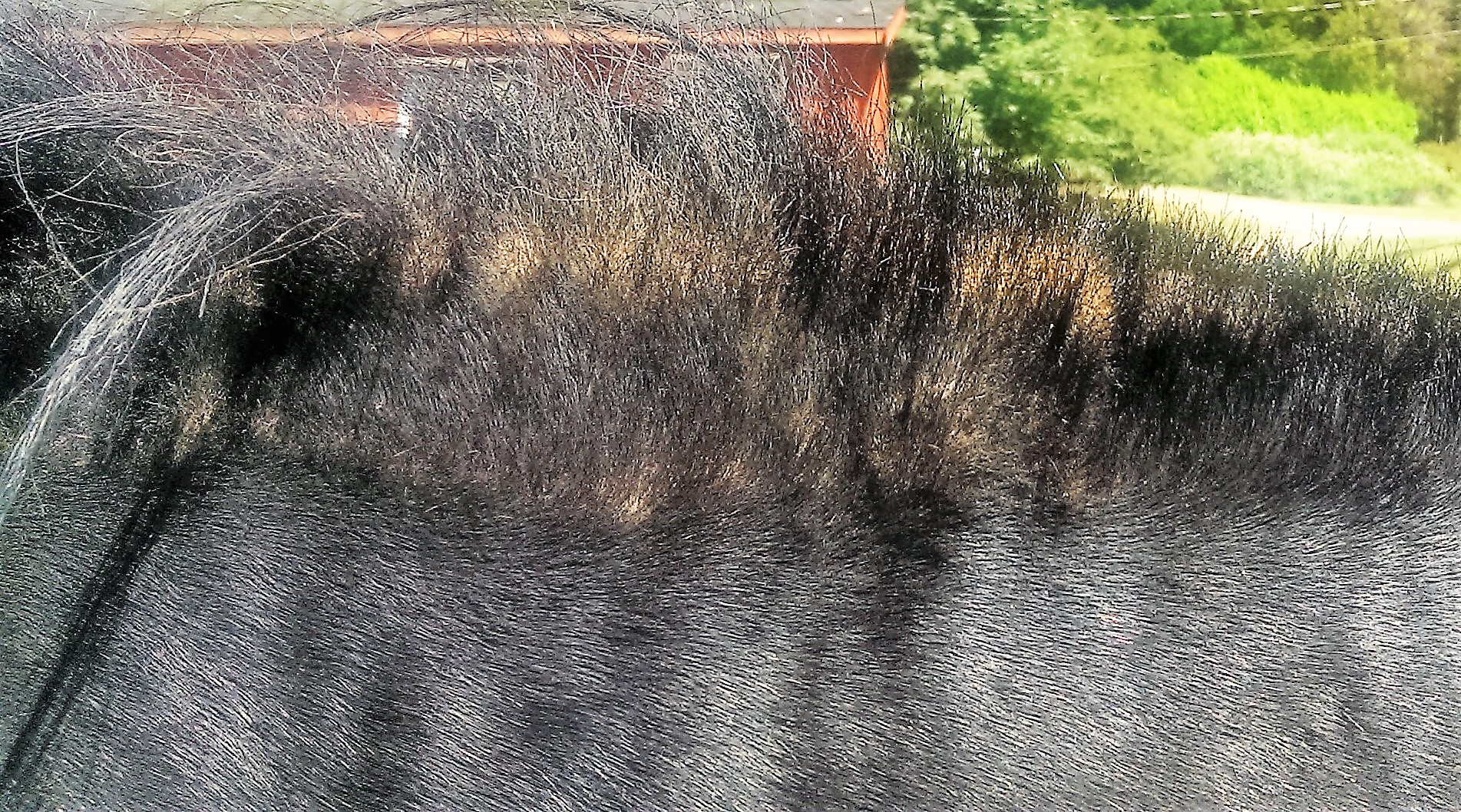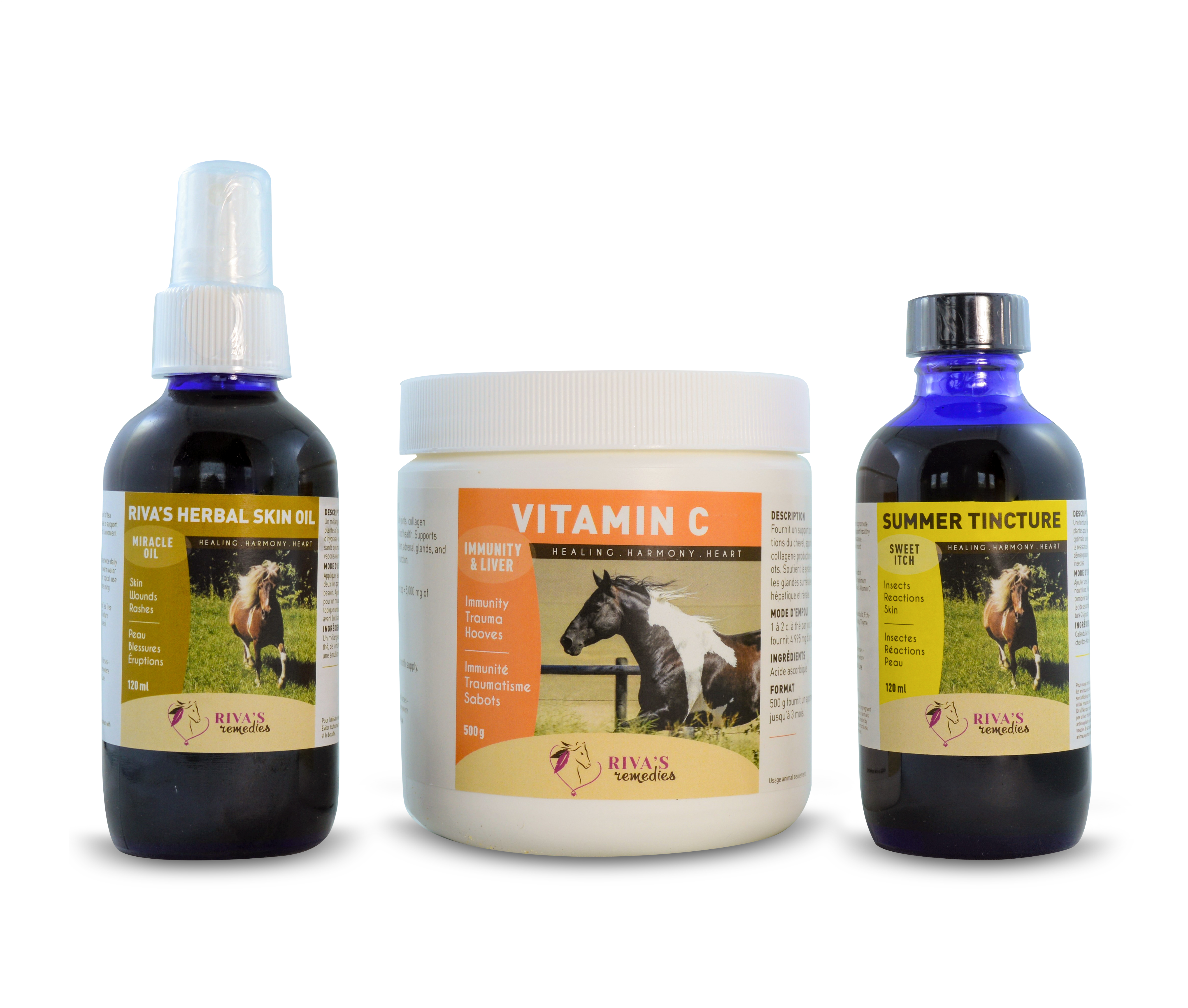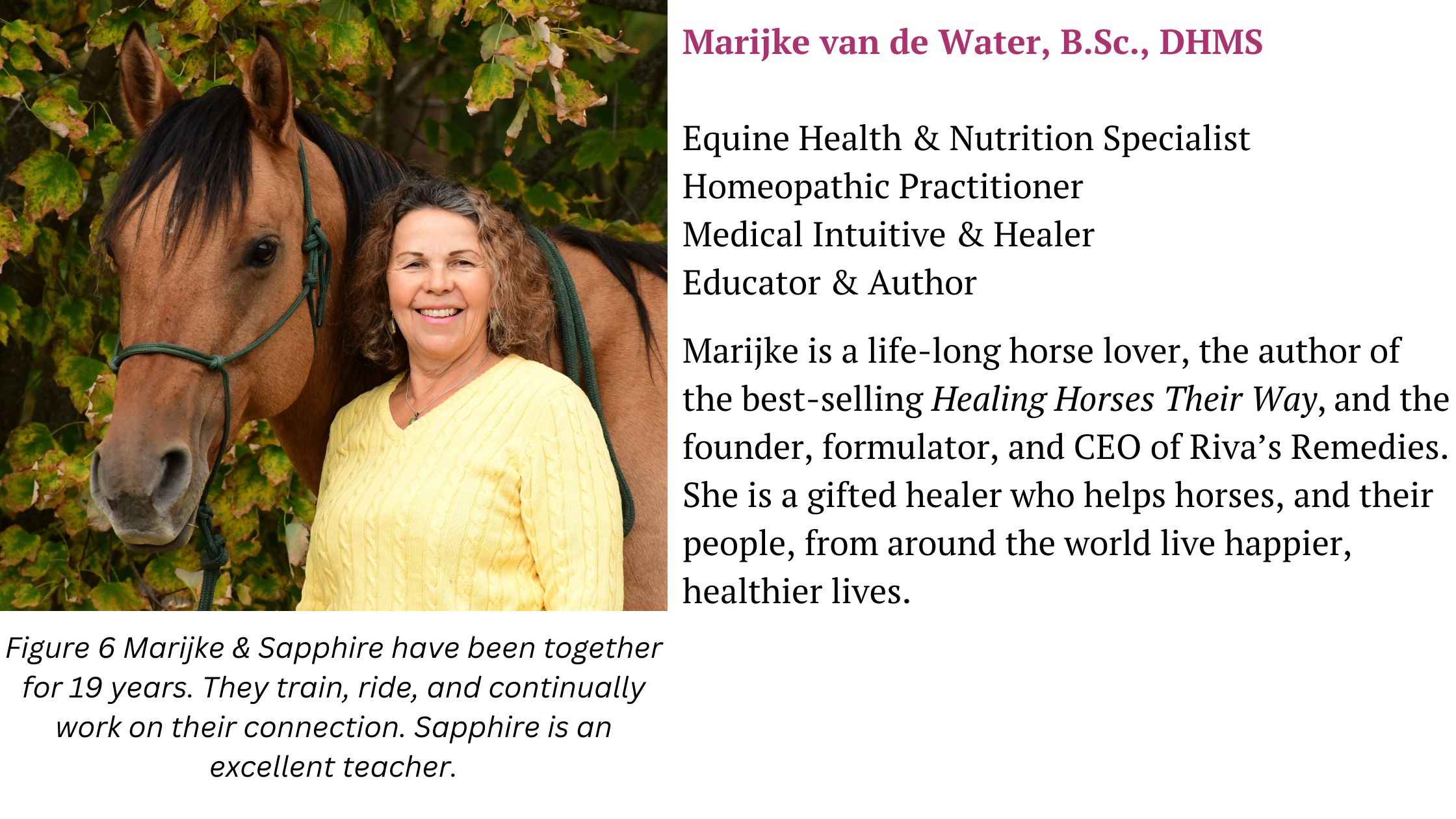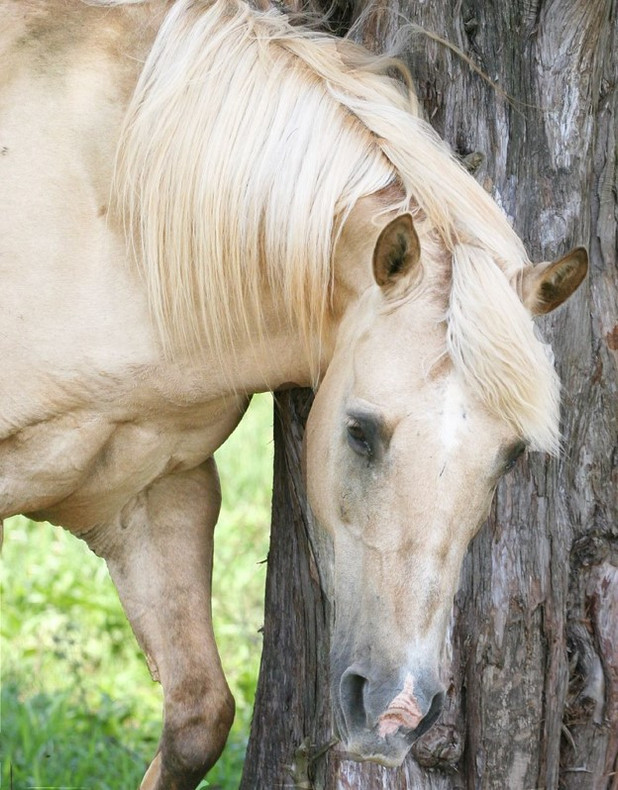If you have a sweet itch horse, or a horse with insect bite reactions then you have seen lots of itching and rubbing and irritation. Some of them back into fence posts or rub their necks on stall doors or the trees. Or some of them go down on their bellies and rock back and forth on the ground. They don’t have hands so they try to get relief to those hard-to-reach places any way they can. Many times, the itching is so intense that they rub out their manes and tails, and other parts of their hair coats. Often, they rub their skin raw.
Many concerned owners have tried everything from a variety of fly sprays to vinegar to fly sheets or just spend money fixing fences. But as we shall see sweet itch is not a topical problem, it is an internal and immune problem which explains why it doesn’t affect all horses. Once you address the real and underlying causes of insect allergies you will get results and your horses will feel much more comfortable.
What is Sweet Itch?

“Sweet Itch” is also often referred to as “summer eczema” and it is caused by a hypersensitivity to insect bites - usually flies, mosquitoes and especially biting midges (“no-see-ums”).
The skin has a protective layer known as the acid mantle which is a layer of lactic acid. It’s job is to protect the skin from bacteria, parasites, insects, and infections. But when the acid mantle is damaged the insects can more easily bite and irritate. This acid mantle of the skin can be damaged by diet, sugar, grain, leaky gut, nutrient deficiencies including anemia, stress, poor immunity, toxins, acids, and food intolerances. All of these can contribute to a variety of skin problems resulting in inflammation, itching, infections, rashes, and increased hypersensitivity to insects.
Why are some horses more vulnerable than others?
Sweet itch and insect sensitivity is caused by a weakened immune system and damaged skin. The opportunistic blood-sucking insect is very attracted to this weakened condition, therefore the stronger horses who are in better health have more resistance. Sensitive horses with less resilience not only attract more bites but have actual allergic reactions to those bites due to compromised immunity. This results in inflamed skin, more discomfort, and increased itching.
What can we do?
 Having had my own severe
sweet-itch horse who was a show horse at the time, I was motivated to find him
some kind of relief without wrapping him up like a mummy. He must have been
horrified! Looking back at his history I can now easily see why he was a
candidate for skin problems. High levels of stress, too many chemical
dewormers, too many vaccines, inappropriate diets, an overload of toxins, and
over shoeing and faulty shoeing which caused blood circulation problems. But
even after correcting these problems he was still a fly magnet and his skin was
still reactive.
Having had my own severe
sweet-itch horse who was a show horse at the time, I was motivated to find him
some kind of relief without wrapping him up like a mummy. He must have been
horrified! Looking back at his history I can now easily see why he was a
candidate for skin problems. High levels of stress, too many chemical
dewormers, too many vaccines, inappropriate diets, an overload of toxins, and
over shoeing and faulty shoeing which caused blood circulation problems. But
even after correcting these problems he was still a fly magnet and his skin was
still reactive.
The holistic model always focuses on correcting or balancing the underlying cause. So, the next step to resolve his severe sweet itch was to build up his immune system, cleanse his blood, and repair the damage to the skin. And the most effective ways of accomplishing this are diet changes, specific nutrients, and natural medicines.
First off, sweet itch horses should not be given any high sugar feeds or grains such as oats, barley, corn, or sweet feed. Also use caution with commercial feed mixes. And horses should not be fed added fats as they can congest the liver, compromise the immune system, and aggravate allergy reactions.
Then I had to formulate a specific product which would neutralize the allergy reaction to the insect bites, detoxify the blood, support the liver, and ultimately restore the health of the acid mantle. After extensive research and some trial and error my quest led me to a new formulation called Summer Tincture. It contains herbal extracts of Calendula, Echinacea, Linden, Thyme, and Yellow Dock. Combined with Vitamin C it was a winning combination! My horse and I could not believe how well it worked! He was so happy! As was I.
Vitamin C (as ascorbic acid) provides excellent support for the immune system, maintains liver function, and helps to restore the acidity of the acid mantle of the skin.
We decided to add the Riva’s Herbal Skin Oil to the program for topical application to open sores, rashes, infections, and the bites themselves. This offers immediate relief and helps to promote healing. It also helps ward off those pesky insects who hate the smell of tea tree oil (but we love it!). The Riva’s Herbal Skin Oil contains Tea Tree Oil and Goldenseal emulsified in light olive oil. Use it for any kind of skin problems including wounds.

The
combination of Summer Tincture, Vitamin C, and Riva’s Herbal Skin Oil is truly
the most effective solution for sweet itch that many of our customers have come
across. It has brought permanent relief to SO many horses! And the horses can
now enjoy their summers focused on spending time with the herd and their humans,
instead of looking for objects to scratch on.
“For years, my horse and I have struggled with her sweet itch. I thought we had tried pretty much everything to bring her relief, then I saw a passing reference to Riva’s Remedies Sweet Itch products. Ordered it, got it, and the results were almost instant. Not only is the sweet itch under control, but Grace is clearly happier and healthier. What a relief – for both of us! So grateful, thank you.” …Nancy T.
Shop Our Sweet Itch Product Package
On Sale Now!


